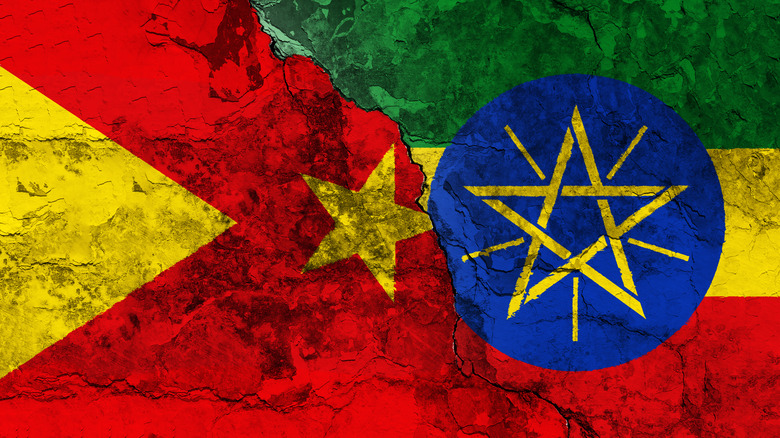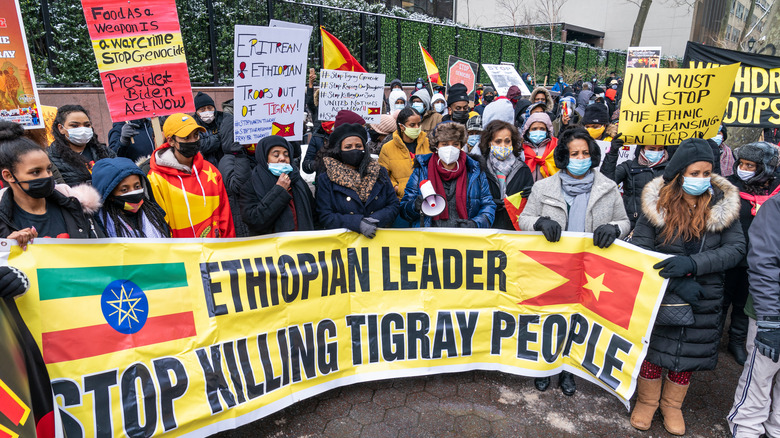Here's Why Ethiopia Is At War With Itself
Ethiopia has many features which distinguish it from other nations both within and outside of Africa. It is one of the continent's oldest states, with deep ties to Abrahamic religions, and the only African nation to escape European colonization until 1935, and until the 1974 "Red Terror" was home to one of the oldest monarchies in history. Most of its 2,000-year history has been against the backdrop of major internal and external problems, the former due in no small part to tension between the 80 minorities that make up modern-day Ethiopia's population (via Nations Online).
Today civil war is ongoing between the government and the Tigray People's Liberation Front of the Tigray region. The conflict has its immediate roots in the formation of a coalition government in 2018, which would have removed the TPLF's longstanding influence in the country. According to CNN, they held regional elections in defiance of COVID-based restrictions on government work. The move was declared illegal by the central government, who after a subsequent attack on an army base chose to send troops and crush the rebellious region.
Ethiopia's civil war has killed thousands
In spite of Prime Minister Abiy's assurances to the contrary, civilian death has been widespread as a result of direct combat, starvation, sexual assault, and executions (via The New York Times). Around 10,000 are thought to have died, while over 2 million refugees have been created by the fighting so far (via BBC). While both factions are reported to have engaged in war crimes, the more extreme atrocities have been attributed to the government.
To the theorized end of maintaining their innocence, the government has even employed Eritrean soldiers in Ethiopian uniforms to perform extrajudicial duties (via The Guardian). This is in stark contrast to when Eritrean soldiers helped the TPLF and their allies take control of the country in 1991 (via BBC). Countries like the United States have imposed sanctions on both Ethiopia and Eritrea over the war in the hopes of creating a ceasefire. As the Tigray capital recently fell back into rebel hands, however, it's possible that the war may drag on for many more months, if not years.

